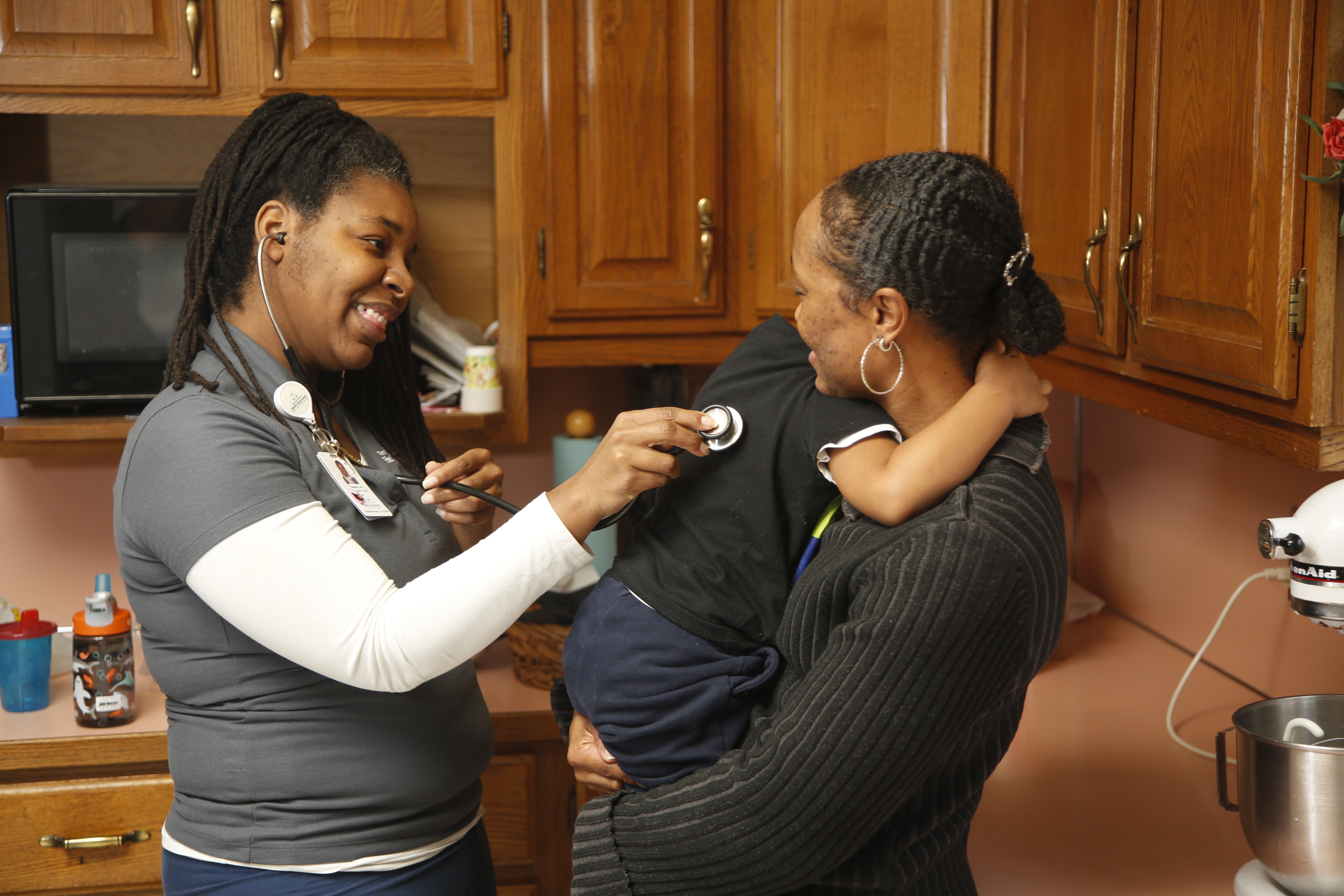
This 2023–2024 respiratory illness season, we’re monitoring 3 common causes of respiratory illness that circulate in Pierce County: influenza, respiratory syncytial virus (RSV), and COVID-19.
Influenza
Centers for Disease Control and Prevention (CDC) estimates that in the United States last flu season (2022–2023) caused:
- 27–54 million flu illnesses.
- 300,000–650,000 flu hospitalizations.
- 19,000–58,000 flu deaths.
Those at highest risk for severe illness include:
- Children under 5 years old.
- Adults 65 years or older.
- Pregnant people.
- People with certain comorbidities.
Guidelines
- Recommend flu vaccine for people 6 months or older with no contraindications.
- All presentations are quadrivalent.
- People with egg allergy may get any vaccine (egg-based or non-egg-based) that is otherwise appropriate for their age and health status.
- Adults 65 years or older should preferentially receive quadrivalent high-dose inactivated influenza vaccine (HD-IIV4), quadrivalent recombinant influenza vaccine (RIV4), or quadrivalent adjuvanted inactivated influenza vaccine (aIIV4). If none of these presentations are available at time of vaccination, any other age-appropriate vaccine can be used.
- The vaccine dosing algorithm for children 6 months through 8 years old who may need a second dose of vaccine is the same as previous years.
- Additional information is available on CDC’s website.
RSV
RSV is one of the most common causes of childhood respiratory illness and hospitalization. Each year, RSV causes about 58,000–80,000 children to be hospitalized and about 100–300 children to die.
RSV is also dangerous for older adults. CDC estimates each year RSV causes about 60,000–160,000 older adults to be hospitalized and about 6,000–1,000 older adults to die.
Guidelines
- Vaccines available for older adults:
- Adults 60 years or older may receive a single dose of RSV vaccine using shared clinical decision-making.
- Adults with certain comorbidities may benefit most from vaccination.
- Vaccination should occur before the start of the fall and winter RSV season. For 2023–2024 season, offer vaccination as early as supply becomes available.
- Arexvy from GSK consists of a single dose after reconstitution (0.5 mL). Consult the package insert for proper storage and handling details, shelf life, and reconstitution instructions.
- Abrysvo from Pfizer consists of single dose after reconstitution (0.5 mL). Consult the package insert for proper storage and handling details, shelf life, and reconstitution instructions.
- Coadministration of RSV vaccines with other adult vaccines during the same visit is acceptable, but limited data is available.
- Monoclonal antibody injection for infants:
- Nirsevimab is a long-acting monoclonal antibody administered as a single dose IM injection.
- Store in refrigerator at 2–8°C.
- The optimal timing of Nirsevimab is as follows, but may be given any time during RSV season for age-eligible infants and children who haven’t received a dose.
- In the first week of life for infants born shortly before or during RSV season.
- Shortly before the start of RSV season for infants younger than 8 months old.
- Shortly before the start of RSV season for children 8–19 months old who are at increased risk for severe illness.
- Generally, RSV season is October–March in most of the continental United States. Washington state data is available on Washington State Department of Health’s (DOH’s) data dashboard.
- Co-administration with other age-appropriate vaccines is recommended.
- Dosing based on age and weight:
- 50mg if <5kg.
- 100mg if ≥5kg.
- 200 mg (2x100mg) for high-risk children entering their second RSV season.
- See clinical considerations for details.
COVID-19
In the United States, COVID-19 causes an estimated 17,000 or more hospitalizations each week.
- Since mid-July 2023, hospitalizations have increased in all age groups, with highest rates in infants younger than 6 months and older adults.
- While 4 out of 5 adults 65 years or older hospitalized with COVID-19 had at least 3 underlying medical conditions, more than half of children younger than 5 years hospitalized with COVID-19 in the first half of 2023 were in a normal state of health at baseline with no underlying medical conditions.
- Most children and adults hospitalized with COVID-19 during 2023 were unvaccinated or had not received an updated bivalent booster.
Guidelines
- Recommend updated (2023–2024) COVID-19 vaccine for people 6 months or older with no contraindications.
- Everyone 5 years or older should receive 1 dose of updated (2023–2024) Pfizer or Moderna COVID-19 vaccine.
- Children 6 months–4 years old:
- Never before received COVID-19 vaccine: Should receive either 2 doses of updated (2023–2024) Moderna COVID-19 vaccine or 3 doses of updated (2023–2024) Pfizer COVID-19 vaccine.
- Previously received mRNA COVID-19 vaccine: Should receive 1 or 2 doses of updated (2023–2024) Moderna COVID-19 vaccine or updated (2023–2024) Pfizer COVID-19 vaccine, depending on the number of prior doses.
- Novavax recommendations remain unchanged. We expect updates in the coming months.
- See our COVID-19 health advisory and CDC’s Interim Clinical Considerations for more information.
